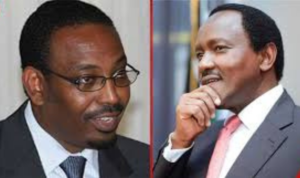As global eyes remain fixed on the Middle East following recent developments in the Israeli conflict, Somalia emerges as a compelling lens through which to view the cascading effects on the region. Our team at AQRI.net is on the ground in Somalia to capture the nuanced reactions and potential transformations sparked by these events.
Somalia, a country with its own complexities and challenges, stands at a geopolitical crossroads and offers an insightful perspective on the reverberations of Middle Eastern dynamics. The impact of the Israeli conflict extends far beyond the immediate geographic boundaries, seeping into the political and social landscapes of neighboring regions, including the Horn of Africa.
In the heart of Mogadishu, citizens and officials alike are closely monitoring the situation. The government, while primarily focused on domestic stability and economic recovery, acknowledges the importance of understanding the broader conflict. Somali analysts suggest that shifts in the Middle Eastern balance of power could reshape alliances and influence Somalia’s foreign policy, particularly in its interactions with Arab nations.
On the streets, the public discourse reflects a blend of solidarity with the Palestinian cause and concern over the potential rise in regional tensions. “We have our own challenges here,” says Amina, a Mogadishu resident and university student, “but we cannot ignore what happens in places like Palestine and Israel because it impacts the Muslim world and our region.”
Economically, Somalia remains vulnerable to any disruptions in the Middle East that could affect crucial trade routes or increase oil prices. Given Somalia’s import-dependent economy, any fluctuation in these areas could have significant ramifications locally, potentially impacting inflation and commodity prices.
Culturally and politically, there is a shared heritage and religious connection with many parts of the Middle East that influence public opinion. This connection brings an added layer of complexity to how Somalia navigates its foreign relationships and domestic policies. According to Ahmed Hassan, a Somali political analyst, “Somalia’s historical ties with countries like Saudi Arabia and the UAE cannot be understated, and the recent conflicts could test these relationships.”
In the coming months, Somalia’s strategic positioning and response to Middle Eastern developments may offer valuable insights into the broader African engagement with these global issues. As Somalia continues its path toward stability, it remains an essential vantage point for observing the potential shifts in Middle Eastern geopolitics and their implications for Africa.
While the region faces uncertain times, the enduring resilience and adaptability of its people provide hope for a positive transformation. Here at AQRI.net, we will continue to bring you candid and informed reporting from Somalia, offering a unique perspective on the evolving geopolitical landscape.


Comment